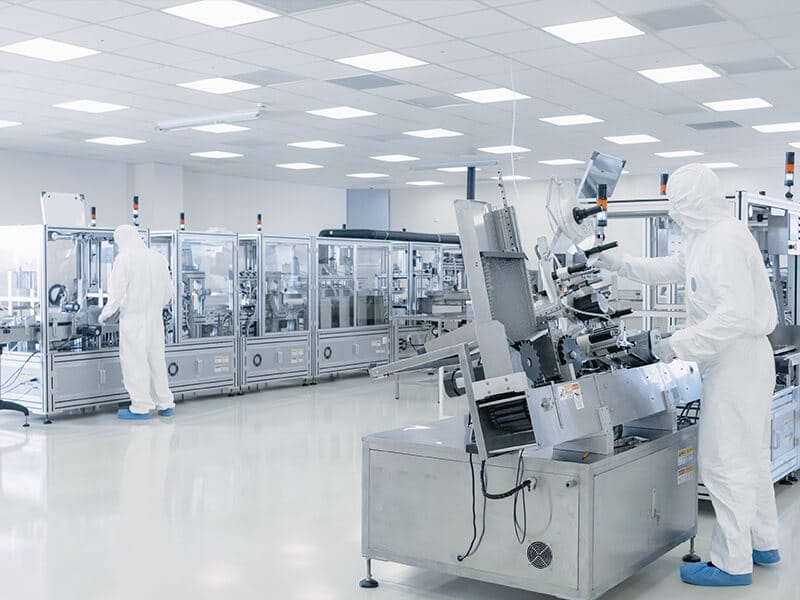
Pharmaceutical & Bioanalytical laboratories
Gas leaks can cause significant losses of expensive high-quality gas
There are a wide variety of gases found within a pharmaceutical or medical laboratory. Many have no taste, colour or smell, which makes it difficult to tell if a gas leak is present. A gas leak from a cylinder or fixed pipe gas system poses a series risk that can cause a potentially fatal incident or hazard within a laboratory environment.
Leak Detection In Biotechnology Laboratories
Industrial gases are essential to the development of modern medicines and the production of pharmaceutical packaging
Pharmaceutical and biotechnological companies use gases in a wide range of applications across all stages of the production chain – from research, development and quality control to production of active pharmaceutical ingredients (APIs) and final drugs. Industrial gases are essential to the development of modern medicines and the production of pharmaceutical packaging.
Speciality gases
The development of new pharmaceutical drugs relies heavily on modern laboratory equipment in which speciality gases are essential. Speciality gases are gases which are rare or more usually gases of an extremely high purity (over 99.9%).
– Nitrogen & The Noble Gases
– Carbon Dioxide; Carbon Dioxide (CO2)
– Oxygen; Enriched Oxygen (O2)
”Pharmaceutical and biotechnological companies use many variants of gas and chemicals – from high purity gases in the laboratory to process gases in production processes such as chemical synthesis, sterilisation gases and gases to grow biological cultures. Research, development, production and quality control laboratories all use gas-consuming analytical instruments such as gas or liquid chromatographs, nuclear magnetic resonances or mass spectrometry.
Leak checks to laboratory equipment
Leak checks to analytical laboratory equipment promotes good laboratory practice and preventative maintenance offering a number of benefits including; improvements to analytical performance, minimising troubleshooting, and the prevention of damage to columns and sensitive detectors. Gas leaks can cause significant losses of expensive high-quality gas, shortened trap and purifier lifetimes, increased column bleed, and increased system and detector maintenance. Many problems can be minimised by leak checking a complete analytical system.
Although it is not a legal requirement to have a gas monitor or leak detector, different countries have varying standards and recommendations when it comes to gases and others do not.
- The US-based OSHA (Occupational Safety and Health Administration) and European EH40 standards both have set permissible exposure limits for gases.
- Italy has established a set of guidelines for storing nitrogen in laboratories, stating that laboratories must have an oxygen sensor in the area deemed at risk and a detection unit to highlight any danger before personnel enter, is placed outside the room.
- Singapore has the Workplace Safety and Health (WSH) Act which aims to protect workers in all workplaces.
Monitoring your gas leak exposure
A micro thermal conductivity leak detector, such as the ION Science GasCheck G provides an ideal tool for the detection of gas leaks found within a pharmaceutical or Bioanalytical Laboratory. This low-cost, handheld device is designed for the rapid, accurate detection of any gas or gas mixture.
Download our FREE Guide
“Leak Detection In Biotechnology Laboratories”
The leak detection in biotechnology laboratories guide provides the reader with an in-depth balance of knowledge on methods of detecting leaks. Checking for leaks within analytical laboratory equipment promotes good laboratory practice and preventative maintenance offers a number of benefits including; improvements to analytical performance, minimising troubleshooting, and the prevention prevents damage to columns and sensitive detectors. Gas leaks can cause significant losses of expensive high-quality gas, shortened trap and purifier lifetimes, increased column bleed, and increased system and detector maintenance.
















